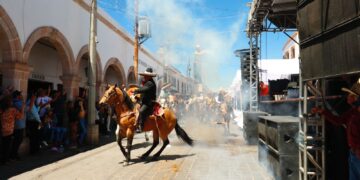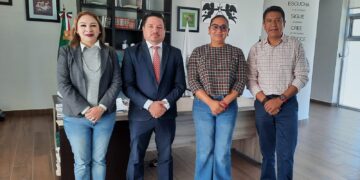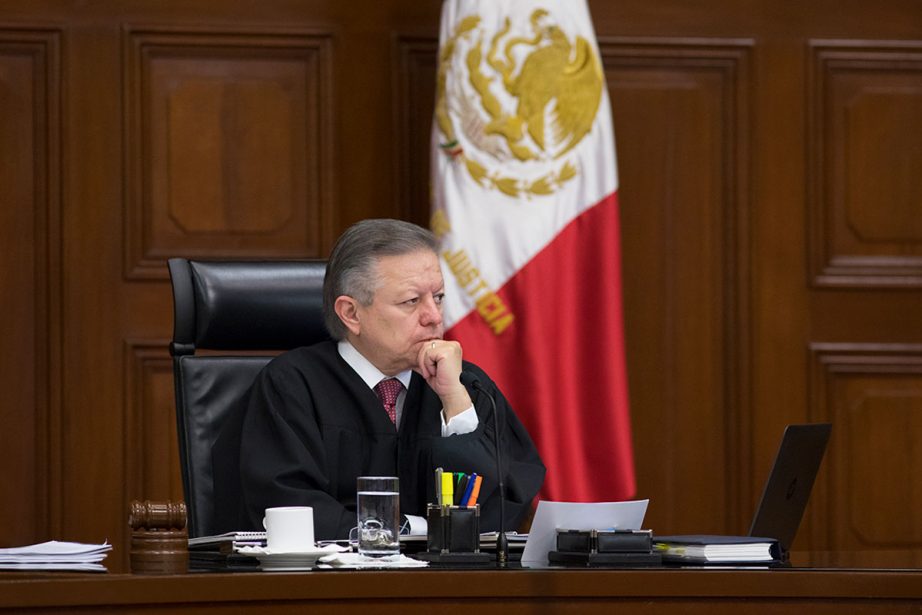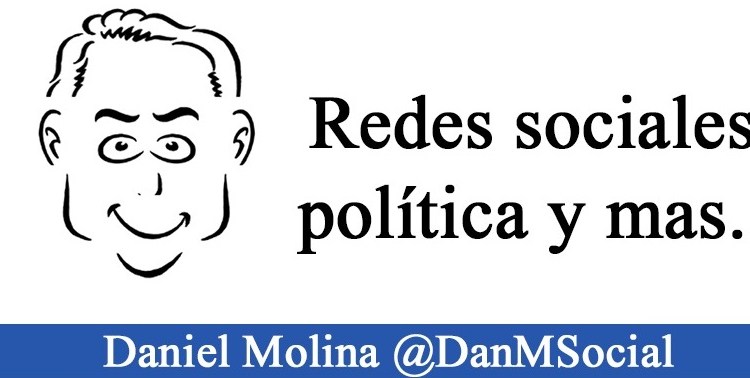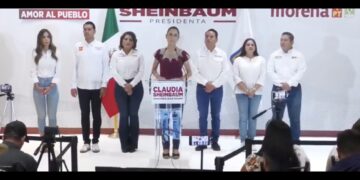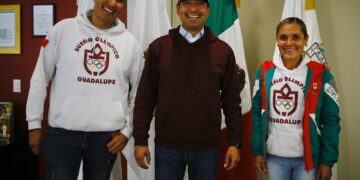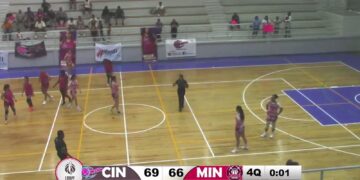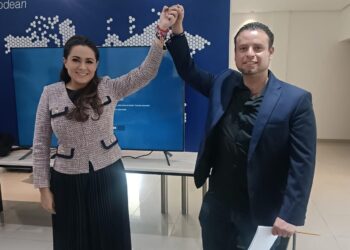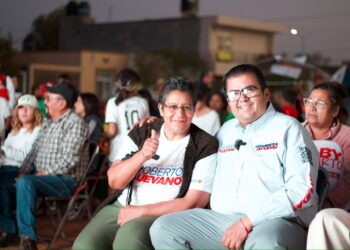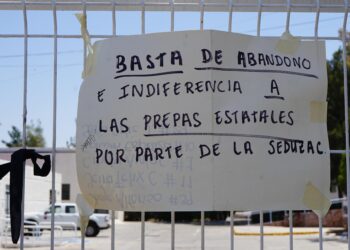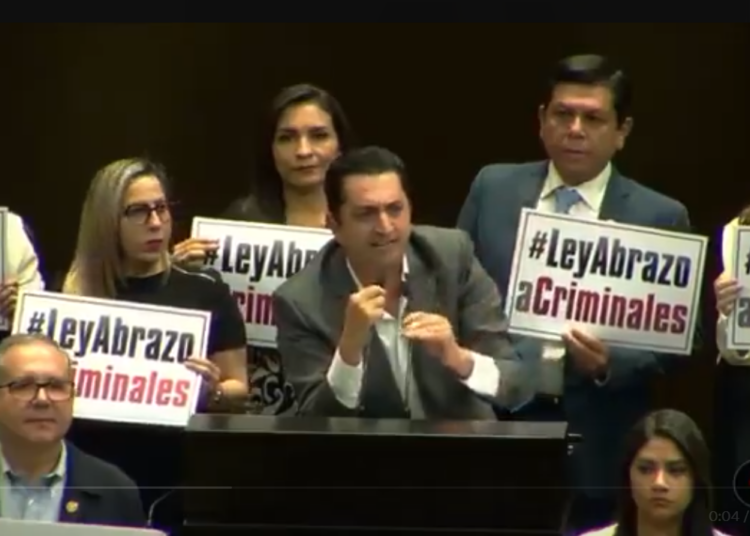- Estado
Trending Tags
- Municipios
- México y el Mundo
- Política
Trending Tags
- Opinión
Trending Tags
- Más…
Trending Tags
- Estado
Trending Tags
- Municipios
- México y el Mundo
- Política
Trending Tags
- Opinión
Trending Tags
- Más…
Trending Tags
MINUTO A MINUTO
NOTICIAS DEL ESTADO
Gobierno de Zacatecas, incapaz de resolver conflicto en prepas estatales; maestros toman Sefin
Maestros de prepas estatales toman secretaría de Finanzas y seguirán en las instalaciones de la Secretaría de Educación y recategorización...
Leer más..POLÍTICA
SEGURIDAD
Rescatan a cinco mujeres y dos hombres secuestrados en Jerez
Jerez, Zac., 24 de abril de 2024.- Elementos de la Policía Estatal Preventiva liberaron a cinco mujeres y dos hombres, que habían sido secuestrados horas antes en este municipio, luego...
Leer más..LA NOTA DEL DÍA
Rescatan a cinco mujeres y dos hombres secuestrados en Jerez
Jerez, Zac., 24 de abril de 2024.- Elementos de la Policía Estatal Preventiva liberaron a cinco mujeres y dos hombres, que habían sido secuestrados horas antes en este municipio, luego de un despliegue policial y...
Leer más..EDUCACIÓN
Gobierno de Zacatecas, incapaz de resolver conflicto en prepas estatales; maestros toman Sefin
Maestros de prepas estatales toman secretaría de Finanzas y seguirán en las instalaciones de la Secretaría de Educación y recategorización desde el 20210, por lo que este día tomaron las instalaciones de la Secretaría de...
Leer más..TINTA INDELEBLE
Código político: Fresnillo, capital del secuestro
Por Juan Gómez Con una población de aproximadamente 240 mil habitantes y ubicada en el centro norte del pais, Fresnillo,...
No existe democracia donde hay miedo
A 46 días de que se lleve a cabo la elección más grande de la historia de México, en el...
ENTRESEMANA/ El pobre exministro del presidente
Por MOISÉS SÁNCHEZ LIMÓN O lo que es lo mismo: “quieren bajarme del barco a como dé lugar”, según se...
MÉXICO Y EL MUNDO
Aprueban Ley de Amnistía, que faculta al Presidente liberar a delincuentes
El pleno de la Cámara de Diputados aprobó en lo general y en lo particular, la reforma a la Ley...
Asesinan a joven promotor de Morena, tras mitin de Sheinbaum en San Luis Potosí
Luego del mitin que llevó a cabo Claudia Sheinbaum, candidata de Morena a la presidencia de la República, en Ciudad...
El Tiempo
Las populares de la semana
-
Encapuchados mandan mensaje a AMLO y Sheinbaum: “Esto no es un montaje”
0 Interacciones -
Rescatan a cinco mujeres y dos hombres secuestrados en Jerez
0 Interacciones -
IEEZ organizará 31 debates; 8 solicitudes fueron rechazadas
0 Interacciones -
Asesinan a joven promotor de Morena, tras mitin de Sheinbaum en San Luis Potosí
0 Interacciones -
Maestros marchan en Zacatecas por la aparición del “Profe Chayito”; fue secuestrado
0 Interacciones
Pórtico en Spotify

Copyright © 2021 Pórtico Mx
ORgullosamente un diseño y desarrollo de Omar Reyes





